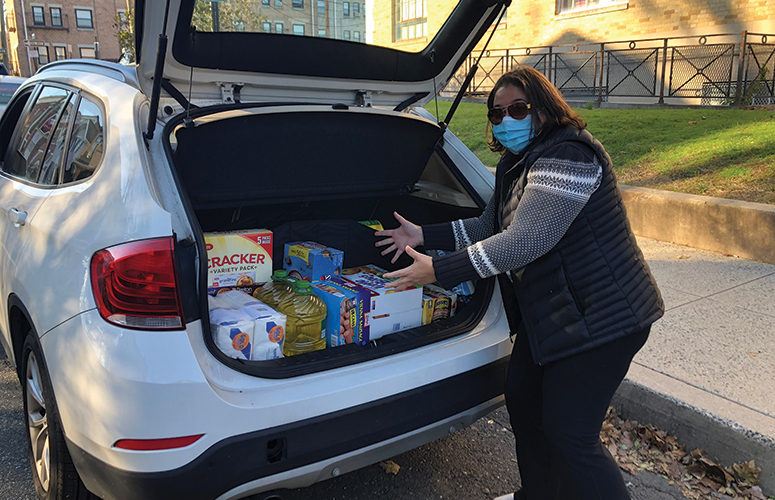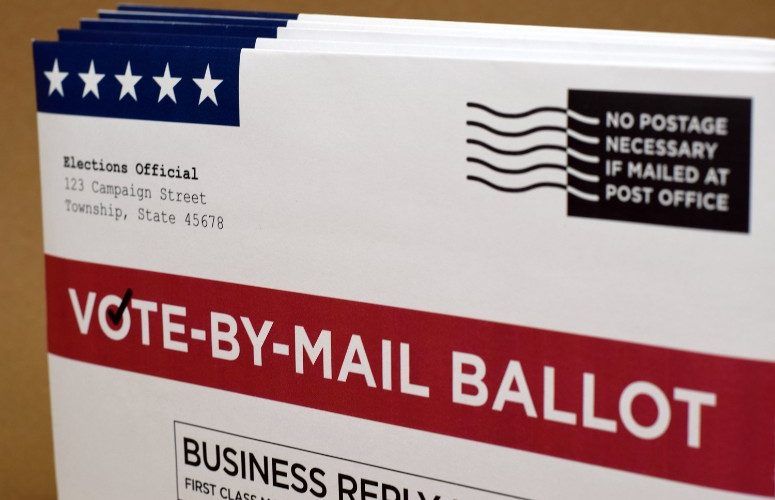
Philanthropy Amid the Pandemic
As COVID-19 continues to impact thousands of New Jersey residents, various philanthropic partners are lending a helping hand.
By George N. Saliba, Contributing Writer On Feb 8, 2021With more than 20,000 confirmed or suspected COVID-19 fatalities in New Jersey and an estimated 30% fewer small businesses as a result of the coronavirus pandemic, philanthropy in its various iterations has recently helped feed people with food shortages and buttressed a broader array of nonprofits and causes.
While many knowledge-based workers often have been able to continue their occupations via the internet and cloud computing, thousands of New Jerseyans with jobs that require face-to-face interaction in industries ranging from casino gaming and entertainment, to restaurants and retail, have met unfortunate circumstances including sustained unemployment without appropriate personal savings. More than 1.9 million New Jerseyans have used unemployment insurance benefits since the start of the pandemic here in mid-March – and hundreds of thousands remain sidelined.
In what might be described as a ripple effect, the Community Food Bank of NJ (CFBNJ) had annually distributed 50 million meals before the pandemic, but it delivered more than 80 million meals by the close of 2020. The general population’s food insecurity spike prompted state government to direct nearly $20 million in federal CARES Act monies in 2020 toward food banks covering all 21 counties.
Food bank struggles had been compounded in the early stages of the pandemic when the entire food industry had difficulty meeting demand for its regular customers due to panic buying, although the industry has been generous, “in some cases getting us access to their vendors,” Carlos M. Rodriguez, president and CEO of the CFBNJ, says.
As the coronavirus continues to ravage the state at press-time, Rodriguez tells New Jersey Business about CFBNJ’s philanthropic efforts. “Overall, “I don’t know what’s going to be worse: the work behind us, or the work in front of us. After the pandemic is over and the economic aftermath is still with many of the families – and everyone has moved onto the next thing – we’re going to make sure that we nourish every single family so that we have the workforce [supported], we have children developing and learning the way they should, and we have our seniors healthy in every corner of New Jersey.”
Addressing the business community, he adds, “If you are in a position to give, give like you have never given before. I am not just saying that selfishly for the food bank. There is a whole ecosystem of not-for-profits that make up this social service network.”
PSEG Foundation President and Director of Corporate Social Responsibility Calvin Ledford says his organization’s No. 1 priority is addressing food insecurity, with $45,000 in support directed toward CBFNJ alone, for example. The foundation additionally donated $1 million to the New Jersey Pandemic Relief Fund, a philanthropic organization designed to support the healthcare community as well as vulnerable people and businesses.
PSEG Foundation also committed $1.5 million in mid-sized grants – ranging from $10,000 to $50,000 – for regional nonprofits. Grants of $500 to $5,000 supported entities “at the neighborhood level.”
Ledford stresses that the coronavirus pandemic has had an adverse impact on the state population’s substance abuse, domestic violence, and mental health. Those topics are “certainly subject matter that we (the foundation) have paid attention to, and we’re supportive of organizations seeking grants to assist with these types of wrap-around services.”
The George Floyd killing also is top-of-mind for many Americans, and Ledford specifically mentions it: PSEG and the PSEG Foundation launched the Powering Equity and Social Justice initiative in June, “with a $1-million commitment to support organizations that address racial injustice, inequality and human rights in communities of color.”
Ledford says, “One of the first programs we supported was Rutgers Center on Policing. We are excited about partnering with them, and looking forward to all of the training and analysis that organization is going to be doing to assist local police departments, both in urban and suburban areas, in dealing with social justice issues.
Echoing the sentiments of the Community Food Bank of New Jersey’s Rodriguez, Ledford says, “We are probably going to be focused on the impacts of COVID-19 well beyond the nation’s target of 60% to 70% of the population vaccinated [against coronavirus], because of the organizations out there that haven’t been able to do their traditional fundraising. … We are planning for that, and the PSEG Foundation will be here for the community as it’s always been.”
Prudential Financial
Prudential Financial, a Newark mainstay since 1875, which is devoted to rebuilding communities and the financial lives of Americans, is also standing fast. The Prudential Foundation Inc. deployed more than $2 million in immediate coronavirus pandemic relief funding, including $600,000 supporting small businesses in Newark and $400,000 to support basic needs for Newark residents.
Prudential additionally donated $100,000 to the New Jersey Pandemic Relief Fund, and provided a $50,000 grant to Veterans Plus for emergency financial assistance for veterans and surviving military family members. There was a $100,000 fund-redeployment “to support immediate needs with Operation Gratitude,” an entity that aims to “forge strong bonds between Americans and their military and first responder heroes through volunteer service projects, acts of gratitude, and meaningful engagements in communities nationwide.”
René Deida, director, social responsibility and partnerships at Prudential Financial, elaborates, “One thing that was a big success for us this past year was engaging our employees during pro bono projects. For the first time, we are doing [a] pro bono project virtually as we engage 127 Prudential employees, working with 26 nonprofits and small businesses to help them build their capacity to do better, or to stay alive in the case of the small businesses.” Pro bono programs helped 26 nonprofit organizations and small businesses recover at an estimated value of more than $880,000.”
On the social front, Shané Harris, vice president of social responsibility and partnerships at Prudential Financial and president of The Prudential Foundation, tells New Jersey Business, “I think the challenge has been that, if anything, the pandemic has amplified issues of inequity that we knew existed. … It has sharpened our thinking and our resolve to continue to invest in things that remove systemic barriers that have prevented people from having access to opportunity and have actually made them more vulnerable to this crisis.
“That is one of the challenges,” she adds, “but also one of the opportunities given that there’s more clarity and more conversation centered around that. Hopefully, it will [also] result in more actions for the private sector, in particular, to combat some of those barriers and challenges.”
Robert Wood Johnson Foundation
Richard Besser, MD, president and CEO of the Robert Wood Johnson Foundation (RWJF) and former acting director for the Centers for Disease Control and Prevention (CDC), notes that the coronavirus pandemic moved RWJF to provide $50 million in short-term relief to national and local organizations, including $5 million for New Jersey entities.
The overall efforts focused on food, housing and income support, Besser says, adding, “The goal was really to address some of the needs of the most marginalized groups in society.”
He adds, “Many of the grants that were project related were converted into general operating support grants to help ensure that our grantees would make it through the crisis. We reached out to our board and had conversations, and recognized that there were really three crises going on: The COVID pandemic, the economic crisis, and the crisis in America related to anti-black violence at the hands of police – and, then, the movement for racial justice. We needed to do more.”
In fact, he explains that the RWJF approved “an additional $100 million in grant making, above its normal payout requirements.”
Besser additionally notes that pre-pandemic, 28 million Americans did not have health insurance, and that this was exacerbated by the steep job losses incurred during the pandemic. He also underscores that many people with health insurance may not have extensive coverage, with only “catastrophic” medical events insured, or, alternately, there has been large cost shifts to consumers in a country where healthcare costs are especially expensive.
Conclusion
If there is a recurring corporate philanthropy theme during the coronavirus pandemic, it arguably showcases the intersection where the disease itself meets socioeconomic and racial factors – and, above all, that corporate America is attuned to this matrix, prepared to act with both money and deed.
Another motif is that the private sector – even in conjunction with state government – cannot mend pandemic wounds on its own: Most interviewees stress the need for ongoing federal support across a wide array of issues such as unemployment benefits, the SNAP (food assistance) program, and other monies for state governments that have been financially bled dry via the public health emergency.
To access more business news, visit NJB News Now.
Related Articles:





